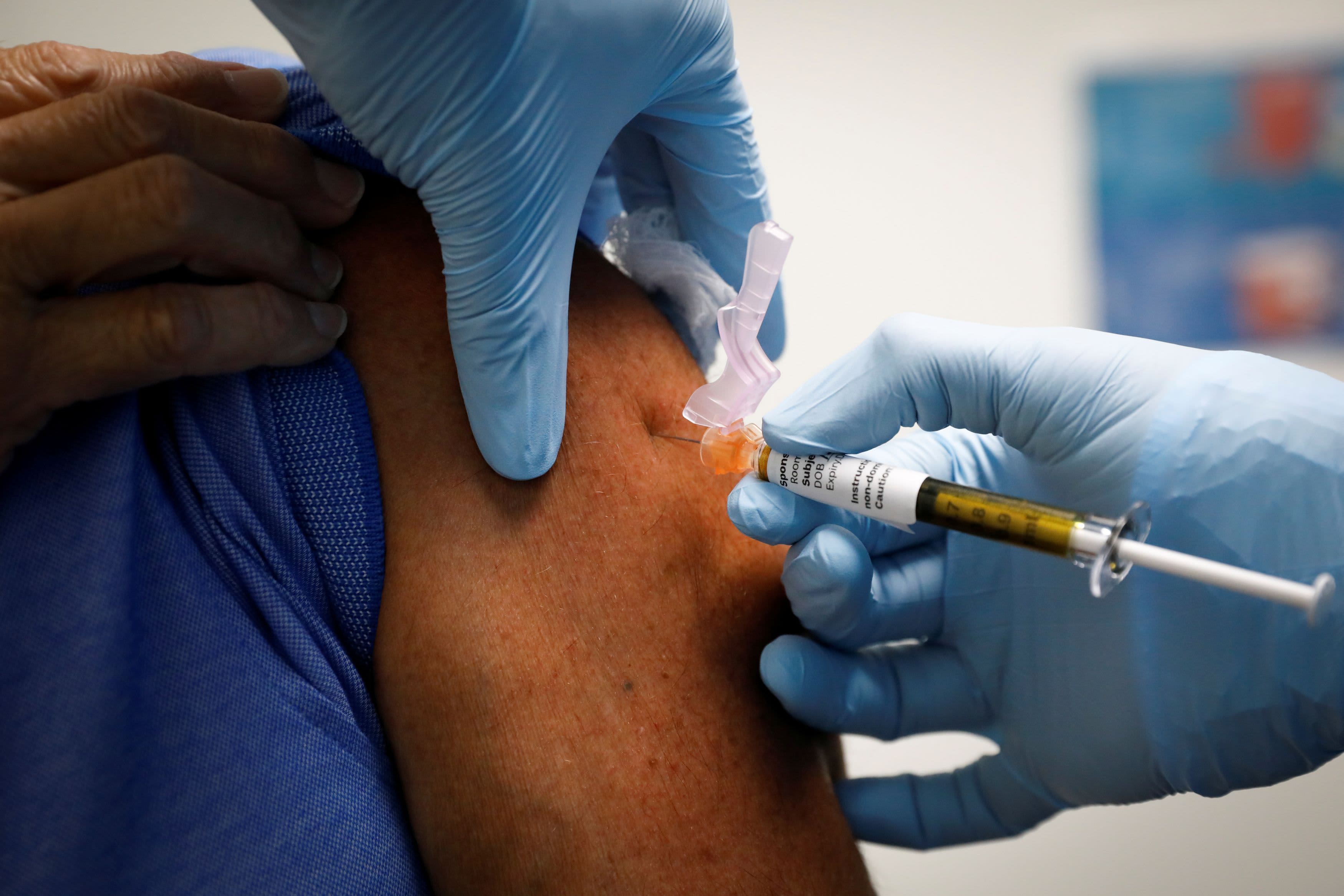Walter Isaacson, a participant in Pfizer’s Covid vaccine trial, describes what it’s like

Author Walter Isaacson, a participant in Pfizer‘s coronavirus vaccine trial, told CNBC on Monday he was thrilled to learn of the strong efficacy data announced by the pharmaceutical giant.
“I feel great. And I feel really great for the country and the world and for Pfizer,” Isaacson said on “Squawk Box.” “I had zero worry” going into the trial whether the vaccine was going to be safe, he added later on “Squawk Alley.” However, he does not know if he got the vaccine or the placebo.
He spoke after Monday, Pfizer said the vaccine it’s developing with German firm BioNTech is more than 90% effective in preventing Covid-19 for those who had no evidence of previously being infected. The results came from an interim analysis of trial data, showing 94 confirmed Covid-19 infections among its 43,538 participants.
After the announcement, Pfizer Chairman and CEO Dr. Albert Bourla told CNBC the company hopes to conclude the trial by the end of November. “You understand that the hopes of billions of people and millions of businesses and hundreds of governments that were felt on our shoulders. Now … I think we can see light at the end of the tunnel,” Bourla said on “Squawk Box.”
Isaacson, a history professor at Tulane University in New Orleans and the former editor of Time magazine, said he applied online in July to join Pfizer’s vaccine trial. Part of his interest in the trial, he said, was that he had been writing a book on molecular biology, explaining he was “particularly interested in the RNA-type vaccines.” Both Pfizer and biotech firm Moderna are using messenger RNA to make their vaccines, a technology that has not received regulatory approval before.
Shortly after applying online, Isaacson said, he was contacted and went to a hospital in Louisiana that was part of the trial to receive his shot — although he is not sure he received the actual vaccine or a placebo. Ensuring participants are not aware is a critical part of double-blind clinical trials, which are the gold standard in science.
Isaacson, former chairman of CNN and author of the 2011 “Steve Jobs” biography, said he was told to look away from the doctor who was inoculating him and she told him, “We don’t want you to know whether you’ve gotten a placebo or the real vaccine. We don’t want it to affect your behavior.”
“She said, ‘I’m not sure you’d be able to tell the difference, but we just want to be sure,'” Isaacson said. “I didn’t have any major reaction to it, but on my phone … every few days I keep a vaccine diary which gets sent into Pfizer so they can tabulate results.” Isaacson is also an advisory partner at financial services firm Perella Weinberg and former CEO of the Aspen Institute think tank.
Pfizer and BioNTech still need to apply for emergency use authorization with U.S. regulators, which would then allow its vaccine to be given to people outside a clinical trial. If that approval is given, Isaacson said, he was told that participants in the trial would be informed whether they received the placebo or the vaccine. Those who received the placebo will be given the vaccine, he said. “That’s in order to make sure people will join trials.”
Bourla told CNBC he’s incredibly grateful for all the trial participants who signed up without assurance that the vaccine would be safe and effective. “I think the world owes them big time.”
— Disclosure: Isaacson is a CNBC contributor.




